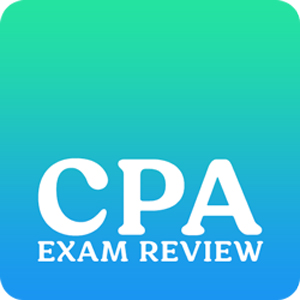 The Financial Accounting and Reporting (FAR) section of the CPA exam is often considered one of the most challenging parts of the CPA journey. It’s also the longest section covering the most topics, concepts, and materials.
The Financial Accounting and Reporting (FAR) section of the CPA exam is often considered one of the most challenging parts of the CPA journey. It’s also the longest section covering the most topics, concepts, and materials.
It encompasses a broad spectrum of topics in financial accounting and reporting standards, making thorough preparation essential for success.
In this article, we’ll explore 15 practical study tips that are crucial for conquering the FAR section of the CPA exam.
15 Study Tips to Ace the FAR (Financial Accounting & Reporting) CPA Exam Section
Contents
- 15 Study Tips to Ace the FAR (Financial Accounting & Reporting) CPA Exam Section
- #1 Understanding the FAR Exam Content
- #2 Developing a Structured Study Plan
- #3 Focusing on Key Accounting Principles
- #4 Utilizing Various Study Resources
- #5 Practice with Multiple-Choice Questions and Simulations
- #6 Memorize Key Financial Ratios
- #7 Breaking Down Complex Topics
- #8 Regularly Reviewing Financial Statements
- #9 Strengthening Calculation Skills
- #10 Studying Governmental and Nonprofit Accounting
- #11 Utilizing Flashcards for Memorization
- #12 Participating in Study Groups
- #13 Regular Review and Reinforcement
- #14 Time Management During Exam Preparation
- #15 Prioritizing Health and Well-being
- Bottom Line
- Frequently Asked Questions
- What Are the Best Techniques for Memorizing GAAP Principles for the FAR Section of the CPA Exam?
- How Can I Improve My Understanding of Complex Financial Accounting Topics for FAR?
- What Strategies Should I Use to Tackle the Task-Based Simulations in the FAR Exam?
- Is There a Recommended Study Schedule or Plan Specific to Preparing for the FAR Section?
#1 Understanding the FAR Exam Content
FAR tests your knowledge and skills in financial accounting and reporting. The section covers a wide range of topics, including the conceptual framework of financial reporting, financial statement accounts, specific transactions and events, government accounting, and nonprofit accounting.
A detailed understanding of the FAR exam content is the first step in your preparation journey. Familiarize yourself with the AICPA’s Content Specification Outline for FAR to understand the exam’s scope and structure.
#2 Developing a Structured Study Plan
A structured and well-planned study schedule is vital for effective FAR preparation. Start by breaking down the entire syllabus into manageable topics and allocate time to each based on their complexity and weight in the exam. Your study plan should be realistic, allowing sufficient time for in-depth study, practice, and revision.
#3 Focusing on Key Accounting Principles
FAR requires a solid understanding of fundamental accounting principles and standards, particularly those under Generally Accepted Accounting Principles (GAAP).
Focus on building a strong conceptual foundation, as this will help you apply these principles to various accounting scenarios in the exam.
#4 Utilizing Various Study Resources
Diverse study resources can enhance your understanding of complex topics. Use textbooks for in-depth study, online courses for interactive learning, and video lectures for concise explanations.
Supplement these with professional literature and standards to stay updated on current accounting practices.
#5 Practice with Multiple-Choice Questions and Simulations
Regular practice with multiple-choice questions is essential for mastering FAR topics. These questions not only test your knowledge but also your application skills.
Additionally, task-based simulations in FAR require you to apply your accounting knowledge in practical scenarios, making regular practice with these simulations equally important.
#6 Memorize Key Financial Ratios
The FAR section of the CPA exam is full of financial ratios. The most common ratios can come up on both the MCQs and the TBSs. It’s a good idea to memorize the most common formulas, so you aren’t left guessing on the exam.
Remember the questions are worded to confuse you. You don’t want to slip up because you can’t remember the difference between the inventory ratio and the inventory sales ratio.
#7 Breaking Down Complex Topics
FAR includes complex accounting topics that can be daunting. Break these down into smaller, more manageable parts. Use diagrams, flowcharts, or analogies to simplify these topics and make them more understandable.
#8 Regularly Reviewing Financial Statements
Familiarity with financial statements is crucial for FAR. Regularly review and analyze different types of financial statements, understanding their components, and how they interrelate. This practice will aid in grasping the practical aspects of financial reporting.
A good strategy is to always review the lessons that you finished 1-2 days ago and 1-2 weeks. This reinforces the past studied concepts, so you don’t forget them. After you finish the current day’s lesson, go back and review the two prior lessons. This strategy really helped in my retention of the study materials.
#9 Strengthening Calculation Skills
Proficiency in accounting calculations is a must for FAR. Regular practice is key to improving your speed and accuracy in performing these calculations. Work on a variety of problems to build confidence in your calculation abilities.
For example, you may need to calculate earning from a pension fund for a task based simulation. Practice using the an exam calculator simulator, so you feel comfortable doing calculations on the exam.
#10 Studying Governmental and Nonprofit Accounting
Governmental and nonprofit accounting are significant parts of FAR and require special attention. These areas have unique accounting standards and principles. Utilize specific study materials that focus on these sectors to ensure a thorough understanding.
#11 Utilizing Flashcards for Memorization
Flashcards are an effective tool for memorizing key accounting terms, principles, and standards. They are particularly useful for quick reviews and reinforcing your memory. Create your flashcards or use pre-made ones to enhance your recall ability.
#12 Participating in Study Groups
Study groups can provide moral support and facilitate a deeper understanding through discussion and explanation.
Participate in study groups or online forums where you can share knowledge, clarify doubts, and learn from others’ perspectives.
Who knows, you might even develop some friendships in your study group. Something good has to come out of the exam, right?
#13 Regular Review and Reinforcement
Regularly revisiting topics you’ve already covered is essential for long-term retention. Set aside time each week to review previous study materials. This consistent reinforcement ensures that the information stays fresh in your mind.
#14 Time Management During Exam Preparation
Effective time management is critical in your FAR study plan. Allocate time wisely between studying new material, practicing questions, and revising previously covered topics.
Ensure that you also balance your study time with rest and relaxation to avoid burnout.
#15 Prioritizing Health and Well-being
Your physical and mental health significantly impact your study efficiency. Maintain a healthy lifestyle with regular exercise, a balanced diet, and adequate sleep.
Practice stress-reduction techniques such as meditation or yoga to keep your mind clear and focused.
Bottom Line
Passing the FAR section of the CPA exam is a demanding but achievable goal. By implementing these 15 study tips, you can develop a comprehensive understanding of financial accounting and reporting, enhancing your chances of success.
Remember that perseverance, dedication, and a well-thought-out study plan are your best allies in this journey. Stay focused, stay determined, and let each study session bring you one step closer to achieving your CPA designation.
Frequently Asked Questions
What Are the Best Techniques for Memorizing GAAP Principles for the FAR Section of the CPA Exam?
To memorize GAAP principles effectively for the FAR section, employ techniques like spaced repetition, where you review the principles at regular intervals, and use mnemonic devices to recall complex concepts.
Creating and regularly revising flashcards with key GAAP principles and their applications can also be beneficial. Additionally, applying these principles to practical scenarios or case studies can help in retaining the information more effectively.
How Can I Improve My Understanding of Complex Financial Accounting Topics for FAR?
Improving your understanding of complex financial accounting topics for FAR involves breaking down each topic into smaller, more manageable segments. Use real-world examples to see how these principles are applied in practice.
Engaging with study groups or forums can provide different perspectives and explanations that clarify difficult concepts. Additionally, teaching concepts to others or summarizing them in your own words can reinforce your understanding.
What Strategies Should I Use to Tackle the Task-Based Simulations in the FAR Exam?
For tackling task-based simulations in the FAR exam, start by practicing as many simulation examples as possible to get familiar with different scenarios. Focus on understanding how to apply accounting principles and standards in these simulations.
Time management is crucial, so practice completing simulations within a set time frame. Also, develop a systematic approach to reading and interpreting the provided information accurately under exam conditions.
Is There a Recommended Study Schedule or Plan Specific to Preparing for the FAR Section?
A recommended study schedule for FAR should include a mix of concept review, practice questions, and simulations. Allocate more time to topics with higher weightage on the exam and areas where you feel less confident.
Begin with an overview of all topics, then delve into detailed study, followed by regular review sessions. Incorporate frequent practice tests to assess your progress and adjust your study plan accordingly. Balancing study time with adequate rest and breaks is also essential to maintain effectiveness.

